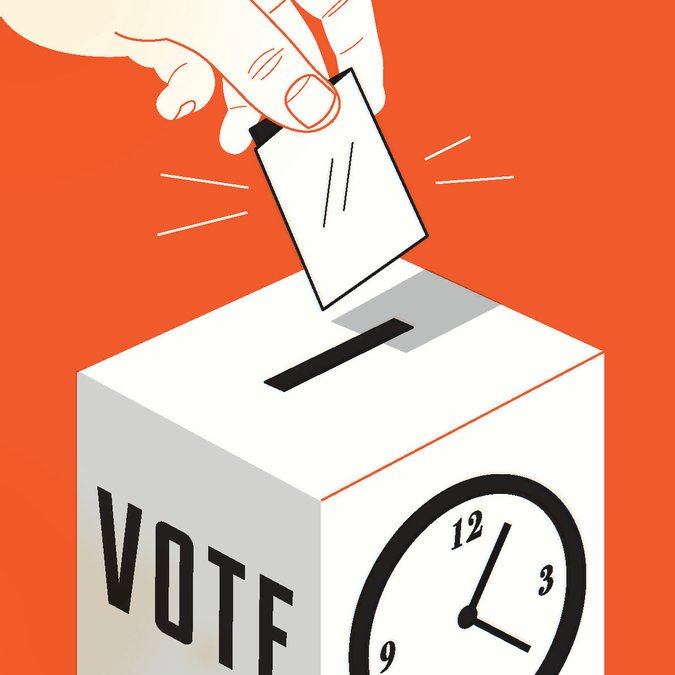
To continue with my discussion on voting I would like to review the incentive structure created by curation rewards. This topic is highly controversial. Everything I say in this post is just my personal opinion and does not represent the opinion of Steemit, Inc. First lets review the game as it exists today.
Rewarding Voting
Voting is something you can do almost as often as you like. Once you reach a certain level of Steem Power, almost every vote puts money in your pocket. When I up vote something, I give the author $150 and I get to pocket $50. That is a huge incentive for me to up vote everything I see.
It gets even more interesting if I up vote something that becomes extremely popular. Suppose the post I up voted went on to earn $10,000, then my initial curation payout of $25 would grow to something like $1500. The difference between a $25 payout and a $1500 payout is what motivates me to pick good content rather than bad content. After all I have a limited number of high powered votes that I can cast.
Lets suppose that each week I pick 1000 posts to vote on within the first 30 minutes. Assuming none of the posts get down votes I would pocket about $25,000. For every post that goes on to earn $1000 or more, I can have 10 posts that get zeroed out. Bottom line is that I could be pocketing $25,000 or more per week (paid out over 2 years) with an unsophisticated bot.
It Pays to be First
Suppose that another whale of my stature were to vote just seconds before me. My curation rewards would be dramatically reduced. Instead of getting $1500 on a popular post, I would be lucky to get $200. As a whale I lose significant money any time another whale beets me to a popular post.
Even though it pays to vote before other whales, it certainly doesn’t pay to vote too quickly. If I voted on a popular article 15 minutes after it was posted and before any whales, then my reward might be $750 instead of $1500. Every minute I wait to vote (up to 30 minutes) earns me $50, but if I wait too long some other whale will vote and I will lose money.
Whales are in Competition
The whales are in competition to up vote quality content first. Each minute they must choose whether to vote on a post or wait. Any whale who chooses not to play this game gets diluted by whales who do play (when Steem Power is more than 90% of supply).
Strategy
Each whale has to develop a strategy and the strategy will ultimately depend upon a statistical analysis of what posts tend to do well. The simplest strategies include measuring the median time until a whale up votes a post by each author. This statistic will tell a whale who to vote on and when.
If all whales played by this strategy then certain authors would end up getting guaranteed votes as early as 10 minutes after they post. Smart whale bots would avoid voting after other whales and instead look for other content to up vote first.
In the hunt for better content whale bots can gather statistics on which minnows (or combinations of minnows) are the best early-predictors of popular content. Once these statistics are gathered the whale bot would vote on everything that shows that indicator.
Emergent Behavior
If we assume all whales are actively working on algorithms to ferret out the best content early, then quality authors will develop guaranteed patrons. Each whale has to make a decision on whether it is more profitable to be a patron to a particular author or to move on in search of another author.
There is little financial incentive to “pile on” after other whales. Doing so will increase rewards to the author and to the other whales. It makes little financial sense to dog-pile unless there is a very high probability that many more whales will follow. With each additional dog that piles on the incentives fall dramatically. The first whale generally gets 80% of the curation rewards.
There is a complex incentive curve. If I vote on 1000 things each day without much thought I can have an almost unchallengeable return on my steem power. If I work slightly smarter I can increase my return. The bigger a whale is, the larger this base rate of return becomes.
Think of this as a mining war where whales are incentivized to implement advanced AI curators that are able to quickly identify gems that have not yet been identified by other whales. Any whale that does not vote to the maximum extent possible is wasting potential income opportunities.
Smoothing the Reward Curve
Assuming more whale bots start operating then chances are that more people will get up voted by at least one whale. Because everyone is sharing a single reward pool, this means the overall payout curve will get flatter.
As the overall payout curve changes the expected value of an individual whales vote falls dramatically. My up votes that are worth $250 when I vote a couple dozen times per day could fall to $100 if other whales started voting 1000 times per day.
Curation Rewards Require Whales to use Bot Algorithms
A so-called “evil-whale” is really nothing more than a curator “miner” making easy profits due to lack of competition. If all whales were competing as actively as the “evil whale” then things would get far more challenging. Market competition would force the return earned by whales toward some kind of natural equilibrium.
Voting bots would become as prevalent as trading bots on the exchanges. Each whale would attempt to customize / tweak their bot to earn the greatest income by curating the most popular content. Their bot will need to be unique and unpredictable or others will “front run” them and take all of their rewards.
No whale that remains passive will be able to maintain the same stake in the system. No selfish whale would ever want to use a down vote because it has a real cost to them and a socialized benefit to everyone else.
Role of Dolphins and Minnows
Bots need data, minnows generate data. When bots are attempting to identify content to up vote they will take clues from minnows. Good dolphins can even start to earn curation rewards when whale-bots pick up on their usefulness as an early indicator.

It may appear that minnows have no influence, but they become the butterfly in Africa that triggers a category 5 hurricane. Minnows that consistently pick out winners before they are winners will eventually attract a multitude of whale and dolphin bots who follow their every vote.
While a minnow vote may not appear to give authors much directly, they can have a massive impact indirectly.
Risk of Self Fulfilling Prophesy?
Most existing robots (except cheetah) do not look at the content, but instead attempt to guess on what other robots and voters will do. There is some risk that the game could evolve in such a way that content is ignored completely as bots up vote based upon what other bots do.
I think this undesirable outcome is unlikely because a large number of normal users and altruistic whales will bias the final result based upon the quality of the content. If the whale bots win the curation game but lose the quality content game, then all the Steem Power earned from curation will become worthless.
Everyone loses if quality content doesn’t rise to the top. This means that whale bots will develop a minimum quality threshold.
Over time there is financial incentive to write bots that parse content looking for signs of quality including:
- images
- outbound links to reputable domains
- headers
- length
- reading level
People will deploy “reverse spam filters” that learn to identify quality content just like email spam filters learn to identify spam. It won’t take long for bots that look at content to become more profitable than bots that ignore it.
Monstro the Evil Whale

Whales earning curation rewards are not a problem if all whales participate in a healthy manner to curate. The influence of any individual whale is minimized when dozens of whales and dolphins are actively competing for curation rewards.
An evil whale is one who is actively looking to harm the platform. They would start down voting quality content, burning the reputation of users, and up voting garbage content. The good whales would have to act selflessly to counteract the behavior of an Evil whale.
Whales that make money from legitimately voting as best they can (even using simplistic bots) are not any more evil than authors that take advantage of human nature to score votes.
Conclusion
The existing curation rewards algorithm, once properly understood, will spawn an arms race to build better bots. This means Steem will motivate the development of the decentralized autonomous curator. It will spawn research into advanced artificial intelligence algorithms that are able to predict viral content early.
Curation is a game for whales and dolphins. Minnows are unlikely to earn any significant return on their votes. Minnows should stick to posting and commenting.
People will buy Steem Power just for the opportunity to apply their own curation reward algorithm in an attempt to out-earn other Steem Power holders. Algorithm development will advance like ASIC development.
That’s the theory. What do you think?
